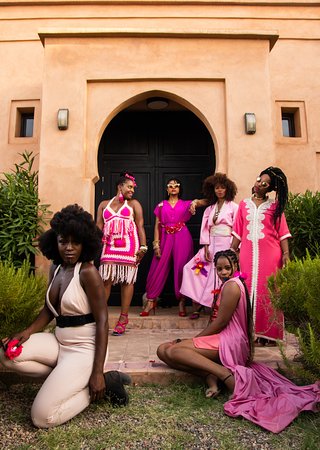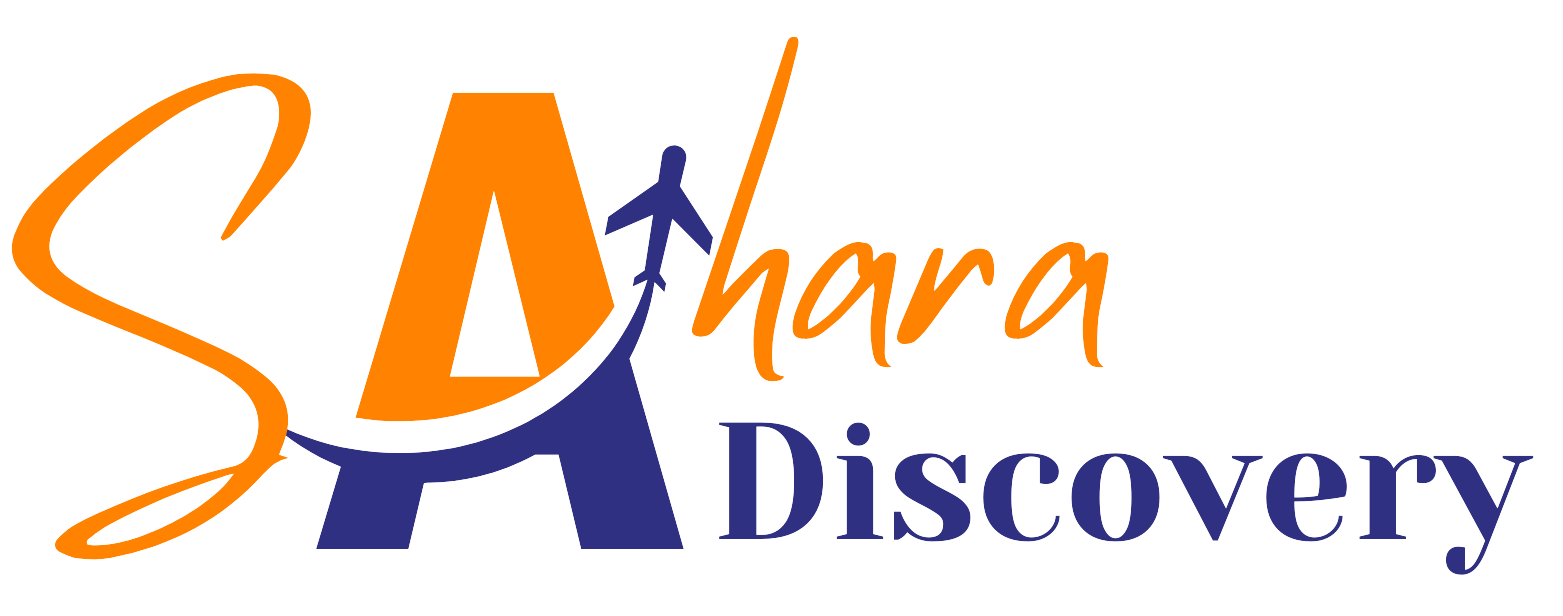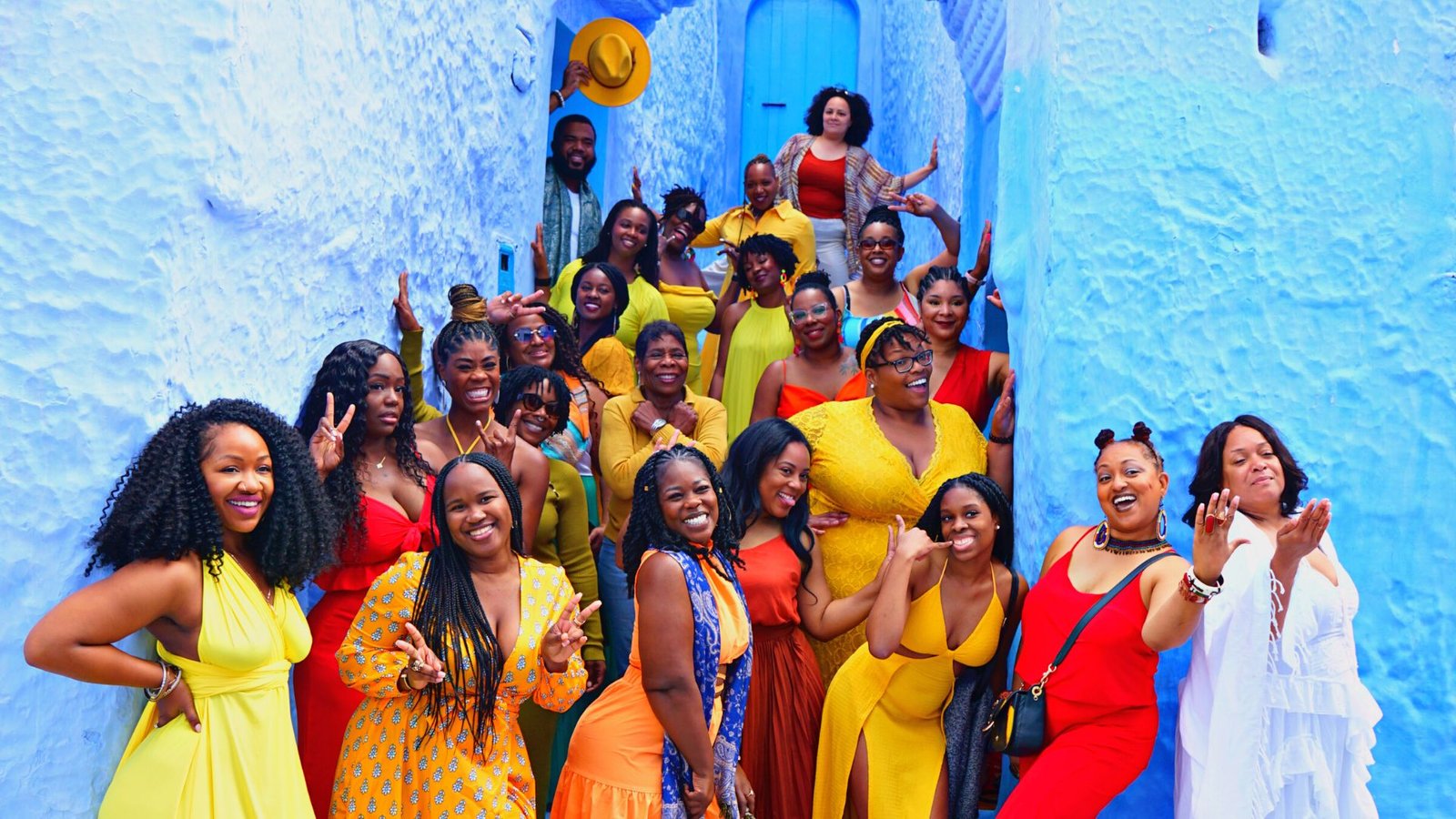The Definitive Guide for The Best Morocco Trips for Black Americans (Safety, Culture & Unforgettable Itineraries)
Why Morocco is a Transformative Destination for Black Americans
Morocco offers unforgettable experiences for travelers seeking culture, history, and adventure. For Black Americans, it provides a meaningful connection to African heritage. Here are the best Morocco trips for Black Americans, featuring immersive city tours, desert adventures, and cultural experiences across Morocco.
For Black travelers in Morocco, this North African kingdom presents a fascinating cultural mosaic where centuries-old trade routes once connected sub-Saharan Africa with the Mediterranean world. The country’s complex history includes the influence of the Gnaoua people, descendants of sub-Saharan Africans who brought their spiritual traditions and music to Morocco, creating a cultural connection that many Black American visitors find profoundly moving.
Whether you’re drawn to the architectural wonders of Fes, the cinematic landscapes of the Sahara Desert, or the artistic haven of Chefchaouen, Morocco offers experiences that challenge preconceptions and create lasting memories for best Morocco trips for Black Americans.
Pre-Trip Essentials: Planning Your Journey
Best Time to Visit Morocco
For Cultural Immersion: March-May and September-November offer perfect weather for exploring medinas and engaging with local communities without extreme temperatures.
For Festival Experiences:
- Gnaoua Music Festival (Essaouira, June): Essential for Black travelers interested in African musical heritage
- Rose Festival (Kelaat M’Gouna, May): Experience Berber culture and traditions
Visa & Entry Requirements
- US Citizens: No visa required for stays up to 90 days
- Passport: Must be valid for at least 6 months
- Entry Stamp: Ensure you receive proper entry documentation
Budgeting Your Morocco Experience
| Budget Level | Daily Cost | Accommodation | Dining | Transportation |
|---|---|---|---|---|
| Budget | $100-200 | Hostels, basic riads | Street food, local cafes | Public transport |
| Mid-Range | $200-400 | Boutique riads | Mix of local & tourist restaurants | Private transfers, some tours |
| Luxury | $600+ | High-end riads, hotels | Fine dining, cooking classes | Private guides, premium experiences |
What to Pack: Cultural Respect Meets Style
Essential Items:
- Modest clothing covering shoulders and knees
- Comfortable walking shoes for cobblestone streets
- Lightweight scarf for religious sites
- Sunscreen and hat for desert excursions
- Portable charger and universal adapter
Style Tips for Black Travelers:
- Embrace bold colors that complement Morocco’s vibrant palette
- Pack breathable fabrics like cotton and linen
- Bring a light jacket for cool mountain evenings
For Budget-Conscious Travelers: Consider Sahara Discovery‘s day-trip options to experience multiple cities without extensive multi-day tour costs. Their flexible packages range from single-day cultural tours in Marrakech to comprehensive 10-day cross-country adventures.
Navigating Race & Culture in Morocco: An Honest Perspective
What is the Racial Dynamic Like in Morocco?
Morocco’s racial landscape differs significantly from the American context. The country has a complex ethnic composition including Arab, Berber (Amazigh), and sub-Saharan African populations. Black solo travelers Morocco often find that their experience varies greatly depending on location, with urban areas generally being more cosmopolitan and diverse.
Will I Be Stared At? Understanding the “Curiosity vs. Hostility” Dynamic
Many Black travelers in Morocco report experiencing curious looks rather than hostile stares. This curiosity often stems from:
- Regional Differences: In smaller towns, any foreigner might attract attention
- Style and Dress: American fashion choices often stand out
- Language Barriers: Speaking English immediately identifies you as a tourist
Real Experience: “I was prepared for the worst, but found that most stares came from genuine curiosity about where I was from. Once I learned basic Arabic greetings, interactions became much warmer.” – Marcus J., Chicago
Common Scams and How to Navigate Them with Confidence
The “Fake Guide” Approach:
- Scenario: Someone offers to show you around for “free”
- Response: Politely decline and stick to licensed guides
Inflated Tourist Prices:
- Strategy: Research typical costs beforehand
- Negotiation: Start at 30-40% of the asking price in markets
Connecting with Locals: Phrases and Etiquette for Positive Interactions
Essential Arabic/Darija Phrases:
- As-salāmu ʿalaykum – Peace be upon you (greeting)
- Shukran – Thank you
- La shukran – No, thank you
- Afak – Please/Excuse me
Cultural Etiquette:
- Accept tea when offered—it’s a sign of hospitality
- Use your right hand for eating and handshakes
- Respect prayer times and mosque protocols
The Ultimate 10-Day Itinerary for the Black American Experience
Days 1-3: Marrakech – Deconstructing the Medina & Connecting with Gnaoua Music Roots
Day 1: Arrival and Orientation
- Check into a traditional riad in the Medina
- Sunset at Jemaa el-Fnaa square
- Evening: Gnaoua music performance at Café Clock
Day 2: Cultural Deep Dive
- Morning: Bahia Palace and Saadian Tombs
- Afternoon: Majorelle Garden (Yves Saint Laurent Museum)
- Evening: Traditional hammam experience
Day 3: Artisan Heritage
- Guided tour of the souks with focus on traditional crafts
- Visit to a cooperative supporting local artisans
- Cooking class featuring Moroccan and West African influences
Days 4-5: Fes – Exploring Ancient Knowledge and Black-Owned Artisan Shops
Day 4: The Imperial City
- Explore Fes el-Bali (Old Medina)
- Visit Al-Qarawiyyin University (world’s oldest operating university)
- Leather tanneries tour
Day 5: Cultural Connections
- Workshop with local Gnaoua musicians
- Visit to pottery and ceramic workshops
- Evening: Traditional Moroccan dinner with a local family
Days 6-7: Sahara Desert – A Spiritual Journey: Stargazing and Reflection
Day 6: Journey to the Desert
- Drive through the Atlas Mountains with Sahara Discovery (offering flexible 1-day to multi-day desert packages)
- Overnight in Merzouga
- Camel trek to desert camp
Day 7: Desert Immersion
- Sunrise over the dunes
- Berber cultural experience
- Traditional music around the campfire
Days 8-10: Chefchaouen/Essaouira – Artistic Expression and Coastal Relaxation
Days 8-9: The Blue Pearl (Chefchaouen)
- Photography tour of the blue-painted streets
- Hiking in the Rif Mountains
- Local art workshops
Day 10: Essaouira – Wind City
- Explore the UNESCO World Heritage medina
- Visit Gnaoua music venues
- Fresh seafood and Atlantic Ocean views
Safety & Wellness for Black Travelers (Especially Solo Women)
Navigating Medinas Safely
Key Safety Strategies:
- Stay in well-lit, populated areas
- Keep copies of important documents
- Trust your instincts about situations and people
- Have your riad’s address written in Arabic
Solo Female Traveler Insights

From Keisha M., Atlanta: “I spent two weeks solo in Morocco and felt safer than I expected. The key was dressing modestly, staying confident, and not being afraid to be firm when saying no to persistent vendors.”
Essential Safety Tips:
- Book accommodations in advance
- Use registered taxi services or ride-sharing apps
- Keep emergency contacts readily available
- Learn basic self-defense phrases in local language
Health Precautions
- Drink bottled or purified water
- Be cautious with street food initially
- Pack basic medications and first aid supplies
- Consider travel insurance with medical coverage
Emergency Contacts:
- Tourist Police: 19
- Medical Emergency: 15
- Your Embassy: Keep contact information handy
Directory: Black-Owned & Recommended Businesses in Morocco
Marrakech
Accommodation:
- Riad Yasmine – Black-owned boutique riad in the Medina
- La Maison Arabe – Historically welcoming to international guests
Tours & Experiences:
- Hassan’s Cultural Tours – Specializes in Gnaoua music and cultural heritage
- Marrakech Food Tours – Includes West African culinary influences
Fes
Artisan Cooperatives:
- Women’s Argan Oil Cooperative – Supporting local women artisans
- Traditional Pottery Workshop – Learn from master craftsmen
Essaouira
Music & Culture:
- Gnaoua Music Center – Workshops and performances
- Cooperative Tamounte – Women’s cooperative for traditional crafts
Recommended Tour Operators
- Sahara Discovery – Comprehensive Morocco tour operator offering 1-day to multi-day experiences across the country, with culturally sensitive guides and customizable itineraries for Black travelers
- Morocco Encompassed – Culturally sensitive tours for Black travelers
- Berber Hospitality – Authentic mountain and desert experiences
Frequently Asked Questions
Is Morocco expensive for tourists?
Morocco can accommodate various budgets. Street food costs $2-5, mid-range restaurant meals $10-20, and luxury dining $30+. Accommodation ranges from $15 hostels to $600+ luxury riads.
What should I not wear in Morocco?
Avoid revealing clothing, especially in religious areas. Cover shoulders, chest, and knees. In beach towns like Essaouira, dress codes are more relaxed.
Can you drink alcohol in Morocco?
Yes, alcohol is available in licensed restaurants, bars, and hotels, though not widely available. Many Moroccans don’t drink for religious reasons.
How do I handle haggling in the souks?
Start at 30-40% of the asking price, be prepared to walk away, and remember it’s part of the cultural experience. Stay friendly but firm.
Is it safe for Black women to travel solo in Morocco?
Many Black women travel solo successfully in Morocco. Key strategies include dressing modestly, staying confident, booking reputable accommodations, and trusting your instincts.
What’s the best way to experience Gnaoua culture?
Visit during the Gnaoua World Music Festival in Essaouira, take music workshops in Marrakech, or book cultural tours that focus on this rich heritage.
Conclusion: Your Moroccan Adventure Awaits
Morocco trips for Black Americans offer an unparalleled opportunity to explore a country where African, Arab, and Berber cultures intersect in remarkable ways. From the spiritual connections found in Gnaoua music to the warm hospitality of local families, Morocco provides experiences that resonate on both personal and cultural levels.
Whether you’re a Black solo traveler Morocco seeking adventure or part of a group exploring heritage and history, this North African kingdom offers transformative experiences that extend far beyond typical tourist attractions. The key to a successful journey lies in approaching Morocco with an open mind, cultural sensitivity, and a willingness to engage authentically with local communities, Morocco Trips for Black Americans.
As you plan your Moroccan adventure, remember that each interaction, each shared meal, and each moment of cultural exchange contributes to a broader understanding between communities. Black Americans traveling to Morocco often return home with not just photographs and souvenirs, but with profound connections and perspectives that last a lifetime.
Ready to begin your journey? Start planning your Morocco adventure today, and prepare for an experience that will challenge, inspire, and transform your understanding of Africa, culture, and yourself.
For more detailed guides on specific aspects of traveling to Morocco as a Black American, explore our related articles on solo female travel, Gnaoua culture, Moroccan cuisine, and shopping the souks with confidence, Morocco Trips for Black Americans.




